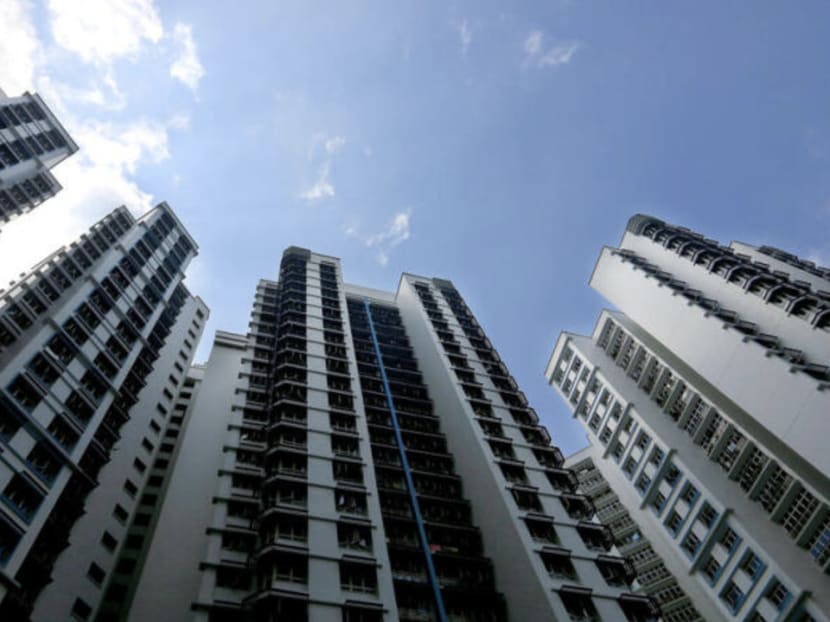Cooling measures won't affect genuine homebuyers, will prevent risk of 'destabilising' market correction: Desmond Lee
SINGAPORE — The latest property cooling measures will not affect genuine buyers looking for a place to live, especially first-time buyers, National Development Minister Desmond Lee assured the public on Wednesday (Dec 16).

- The latest property cooling measures will not affect genuine home-buyers, National Development Minister Desmond Lee said
- The intent of the revised rules is to ensure affordable housing for Singaporeans
- Changes to the Additional Buyer's Stamp Duty will moderate demand from those buying property as an investment, he explained
- The tightening of the Total Debt Servicing Ratio is not expected to affect most borrowers buying HDB flats
SINGAPORE — The latest property cooling measures will not affect genuine buyers looking for a place to live, especially first-time buyers, National Development Minister Desmond Lee assured the public on Wednesday (Dec 16).
Explaining the rationale behind the cooling measures, which were announced at about 11.30pm on Wednesday night, Mr Lee said that the regulations address both the demand and supply side of housing.
“They will help to support a stable and sustainable property market in the medium term and also ensure that housing remains affordable for Singaporeans, the majority of whom live in Housing and Development Board (HDB) flats.
“Crucially, our measures seek to prioritise housing purchases for genuine owner-occupation, especially among first-time homebuyers,” Mr Lee added during a briefing for the media on Thursday morning to explain the latest announcement.
Among the rules are stricter loan-to-value limits for homebuyers taking a property loan from HDB and increased Additional Buyer's Stamp Duty (ABSD) for the purchase of private residential properties.
The Total Debt Servicing Ratio (TDSR), which applies to all property loans, will also be lowered from the current 60 per cent to 55 per cent. This means that a person's total monthly loan payments, including mortgage loans, cannot exceed 55 per cent of his or her total gross income.
On Thursday, Mr Lee also announced that both private and public housing supply would be increased to meet housing demands. For example, there will be 23,000 Build-To-Order flats launched each year in 2022 and 2023.
Mr Lee said that the aim of these moves is to ensure that HDB resale prices remain affordable and that the house price-to-income ratio, which has been on an upward trend, remains well below its historical levels.
Mr Lee added that the Government “decided to move now” despite the uncertainty by Covid-19, because it wanted to reduce the risk of a self-reinforcing cycle of price increases in the private and public housing resale markets that will affect housing affordability.
He pointed out that there is a clear upward market momentum in prices and transaction volumes, despite the uncertainty of the Covid-19 situation, including the prospect of the Omicron virus variant spreading in Singapore.
"Left unchecked, prices are likely to run ahead of economic fundamentals," he said, adding that this will increase the risk of a destabilising correction later on that will hurt many households.
On changes to the ABSD rates, Mr Lee said that the rates remain the same for Singapore citizens and permanent residents getting their first residential property.
This will moderate demand from those buying residential property for investment and will not affect housing purchases for genuine owner-occupation.
The tightening of the TDSR was also “carefully adjusted to moderate demand, while not overly hindering Singaporeans’ home-ownership aspirations”, he added.
The TDSR change is intended to encourage greater financial prudence among homebuyers by giving them an extra buffer against potential income reductions or interest rate increases.
Most borrowers buying HDB flats are unlikely to be affected because the vast majority of them (97 per cent) have a TDSR of less than 55 per cent now, he pointed out.
“While some prospective private housing borrowers will need to consider right-sizing their intended purchases and the loans they take on, the tighter TDSR threshold will put households in a better position to service their ongoing mortgage obligations in the medium term.”
The reduction in loan-to-value limits from 90 per cent to 85 per cent will also not be expected to affect first-timer buyers significantly, especially those in the lower- to middle-income families, as they can benefit from grants of up to S$160,000 and use their Central Provident Fund savings upfront to pay for their flat, Mr Lee said.
He urged Singaporeans to exercise prudence in property purchases and ensure that they can service their mortgages or home loans sustainably in the long-term.











